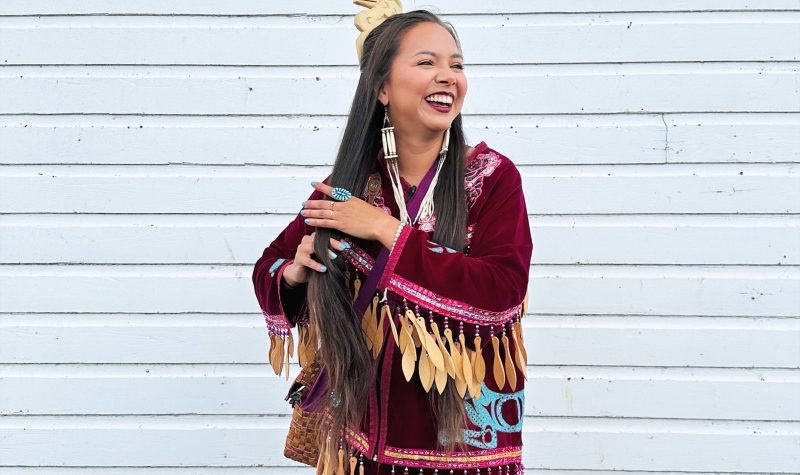The ongoing and growing housing crisis in BC and its effect on Indigenous youth was the focus of one of the presentations at the British Columbia Assembly of First Nations Housing Forum, held in Prince George on October 25-26, 2023.
In order to address the unique needs of youth, Katisha Paul of the W̱JOȽEȽP and St'át'imc First Nations was elected Youth Representative of the Union of BC Indian Chiefs (UBCIC) in March 2023. She was invited to share her perspectives on Indigenous youth and the housing crisis at the Forum.
When asked to identify a crucial factor that the three levels of government need to understand when developing sustainable housing for youth, Paul identified that "It is our knowledge systems, our traditional knowledge systems that hold us in the center of our nations, allowing for love, grace, and guidance. Culture saves lives, essentially, for us as First Nations peoples. And seeing as the culture is derived from the land, it means further that our land is our future. And when we are creating programs and wanting to house our youth, they have to feel safe."
"They have to feel as though they are still feeling that warm hug of their nation when or if they have to leave home," she continued. "And if it is the case where a youth is able to stay on their home territories and their homelands, then they have to be supported there as well. There must be programs that allow them to learn about how to be financially stable. and give them opportunities within their territories that will provide jobs that could pay enough to live sustainably."
Paul emphasizes that housing is a critical factor in the well-being of youth, "Our youth are thriving in all sectors of our social, economical, political, and even spiritual levels. And for that, I'm thankful because we are becoming so empowered that we could inspire others to move forward and live a good life."
She revealed an influential caveat though, saying, "The only way to do that is to have good housing. How are we supposed to expect a youth to live a good life and be successful across all sectors? If their home in their own backyard is not clean, if they don't even have a home, how are we providing safety? How are we going to give them the resources that they need to succeed?"
When creating programs and working on solutions that involve youth, Paul points to the importance of conversing with youth and bringing them to the table, "Often times, people creating programs sit within four walls of a building and they've already forgotten what it means to be a youth."
She revealed too that youth homelessness is something that looms within her own family, as her aunt prepares to protest from a teepee at Vancouver City Hall.
Changing climate also influences housing situations that may be considered well established. Paul explains, "We are coming up to a point in our lifetime where we are going to have to start negotiating with First Nations to ask them to move yet again from their own reserves because of safety. We were displaced so many times already." A stark consideration she punctuated by asking, "Where are they going to go?"


